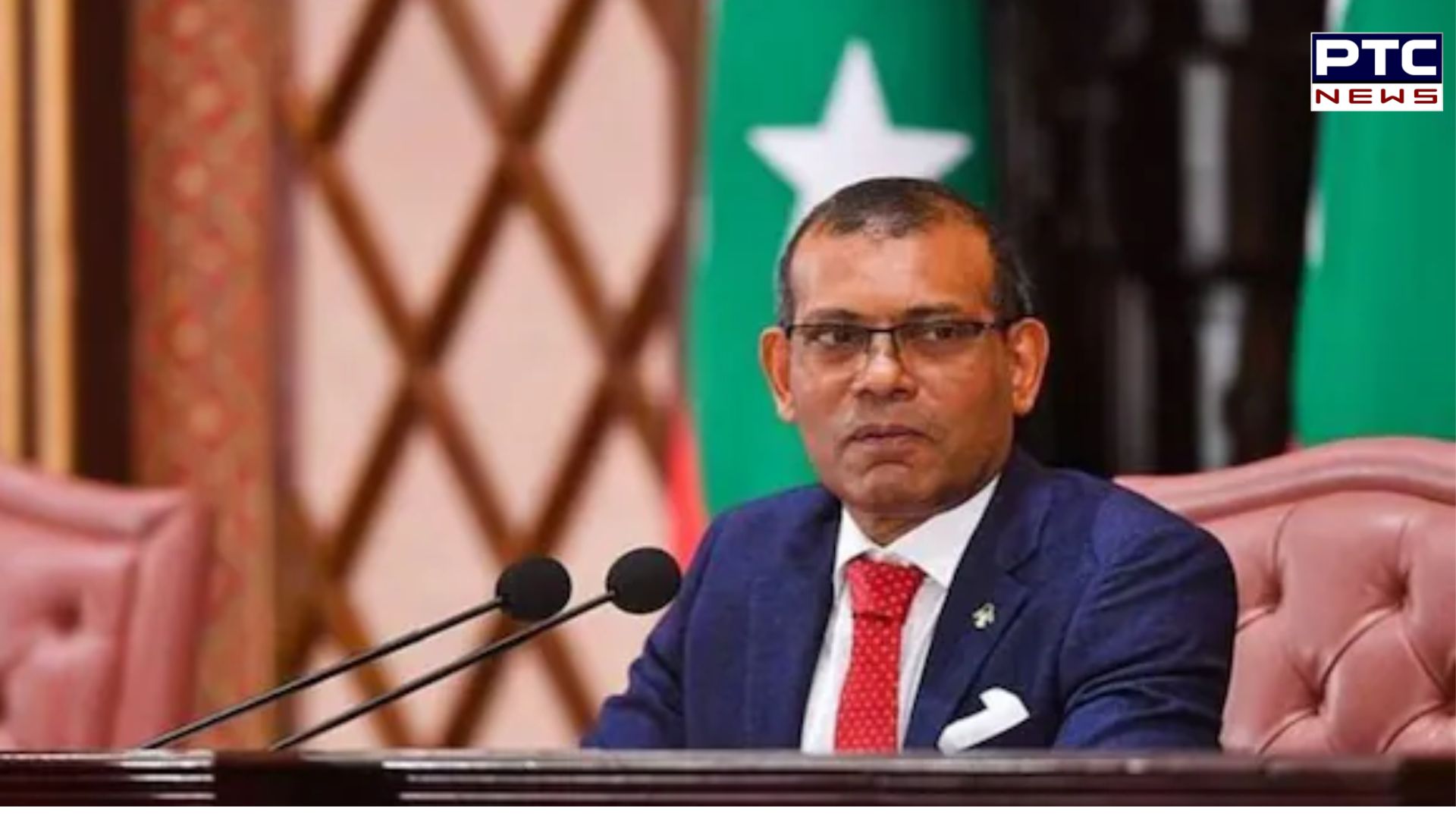

India-Maldives Row: Ex-President Nasheed apologises to India, says 'people of Maldives are sorry'
PTC Web Desk: In a recent turn of events, the diplomatic tension between India and the Maldives has escalated, with concerns arising over the repercussions of India's boycott call, particularly in the crucial realm of tourism. Former Maldivian President Mohamed Nasheed, currently in India, issued an apology on behalf of the Maldivian people while expressing worries about the impact on their economy.
India-Maldives row reached a new low when President Mohamed Muizzu, perceived as pro-China, announced plans to expel all Indian military personnel from the Maldives by March 10. India responded with a boycott call, affecting various sectors, notably tourism, a cornerstone of the Maldivian economy.
"It has impacted the Maldives a lot, and I am actually here in India. I'm very worried about this. I want to say the people of the Maldives are sorry, we are sorry that this has happened. We want Indian people to come on their holidays to the Maldives, and there will not be any change in our hospitality," Nasheed expressed, highlighting the gravity of the situation.
Despite the escalating tensions, Nasheed commended India's historically responsible approach in handling such matters. Instead of exerting pressure, India proposed a diplomatic discussion when President Muizzu sought the departure of Indian military personnel. Nasheed emphasised India's diplomatic finesse, stating, "They did not twist their arms. They did not display muscle, but just simply told the government of Maldives, 'Okay, let's have a discussion on that.'"
Addressing the recent defense agreement between the Maldives and China, Nasheed downplayed it as not being a defense pact but rather an acquisition of equipment. He expressed concern about the government's perceived need for more tear gas and rubber bullets, asserting, "Governance is not through the barrel of the gun."
Read | Lok Sabha Elections: Congress' first list of 39 candidates out; Rahul Gandhi to contest from Wayanad
Read | MEA raises concerns with Moscow over Indians working as support staff for Russian army
Read | Delhi police officer suspended for kicking men during Friday Prayers; video viral
India's External Affairs Minister S Jaishankar, weighed in on the situation, acknowledging that misunderstandings can arise between nations. He expressed optimism in resolving the dispute through diplomatic means, highlighting the importance of diplomacy in such scenarios. "Humanity is humanity. Diplomacy is diplomacy, and politics is politics. The whole world doesn't always run with obligation...so if we have encountered such a situation, the solution will come through diplomacy only," Jaishankar stated.
While addressing potential misconceptions, Jaishankar urged understanding, highlighting that people may lack complete knowledge of the situation or be misguided by external influences. Diplomacy, according to him, remains the key to resolving disputes between nations.
In a significant move, the Maldives announced its decision not to extend the agreement allowing India to conduct hydrographic surveys in collaboration with the Maldives. This decision further strained the diplomatic ties between the two nations.
President Muizzu's choice to break from tradition by not visiting India on his first official trip added another layer to the escalating tensions. Instead, he opted to visit Turkey and then China, signaling a shift in diplomatic priorities.
-
